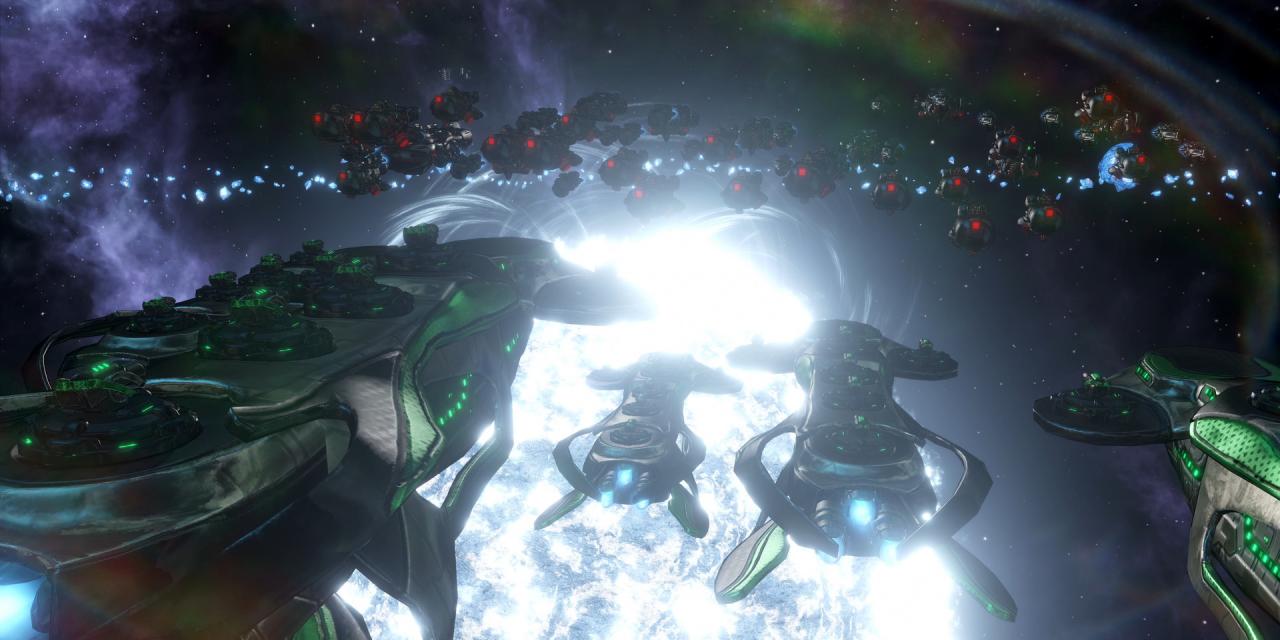
Let's explore into the best origins in Stellaris and break down what makes each one unique, along with their pros and cons. Whether you're a seasoned player or a newcomer, these insights will help you choose the best origin for your next galactic adventure.
1. Hegemon
The Hegemon origin puts you at the helm of a powerful hegemonic empire, leading a federation right from the start. You begin as the dominant member of a three-empire federation, giving you a solid political and military advantage.
Pros:
- 2 strong early-game alliances gives Hegemon a massive advantage.
- Immediate federation membership.
- Bonus to diplomatic weight.
Cons:
- Can be challenging to manage federation politics.
- Dependent on federation members' cooperation.
- Potentially slower individual expansion.
2. Scion
As a Scion, your empire starts under the protective wing of one of the ancient Fallen Empires. This gives you access to advanced technologies and the occasional aid from your patron.
Pros:
- Advanced technology and resources early on.
- Powerful Fallen Empire protection.
- Unique events and interactions.
Cons:
- Limited autonomy under your patron.
- Potentially hostile relations with other Fallen Empires.
- Risk of patron's demands.
3. Void Dwellers
Void Dwellers live in massive space habitats rather than planets. You start with three habitats, providing unique opportunities and challenges in managing your population and resources.
Pros:
- Highly specialized habitats.
- Immune to planetary hazards.
- Efficient resource management.
Cons:
- Difficult early expansion.
- Vulnerable to habitat destruction.
- Requires careful resource balancing.
4. Shattered Ring
Shattered Ring starts you on a broken ringworld, with a partially functioning segment and opportunities to restore the ringworld to its former glory.
Pros:
- High potential for late-game power.
- Unique restoration projects.
- Strong starting segment.
Cons:
- Vulnerable early game.
- Expensive restoration costs.
- Limited initial expansion.
5. Common Ground
Common Ground begins with your empire as part of a federation of three empires, promoting cooperation and shared growth right from the start.
Pros:
- Immediate federation membership.
- Early diplomatic and military support.
- Shared technological growth.
Cons:
- Dependent on federation dynamics.
- Potential for internal conflict.
- Limited individual autonomy.
6. Necrophage
Necrophage allows you to transform other species into your primary species through necrophage assimilation, creating a unique and powerful empire.
Pros:
- Strong population growth.
- Unique necrophage mechanics.
- Powerful military units.
Cons:
- Complex population management.
- Potential diplomatic penalties.
- Requires careful planning.
7. Progenitor Hive
Progenitor Hive starts your empire as a hive mind with a unique progenitor species. This origin focuses on rapid expansion and strong internal cohesion.
Pros:
- Rapid population growth.
- Strong internal stability.
- Unique hive mind mechanics.
Cons:
- Vulnerable to external threats.
- Limited diplomatic options.
- Requires efficient resource management.
8. Imperial Fiefdom
Imperial Fiefdom places your empire as a vassal under a powerful overlord, providing protection but also imposing certain constraints.
Pros:
- Early protection from a powerful overlord.
- Unique vassal mechanics.
- Potential for gaining independence.
Cons:
- Limited autonomy.
- Dependent on overlord's policies.
- Potential for restrictive demands.
9. Clone Army
Clone Army starts with a highly specialized population of clones, offering unique opportunities and challenges in managing growth and development.
Pros:
- High initial population growth.
- Unique clone mechanics.
- Strong early-game units.
Cons:
- Limited genetic diversity.
- Vulnerable to population decline.
- Requires careful population management.
10. Overtuned
Overtuned starts with a highly advanced, genetically modified species, offering powerful early-game advantages at the cost of potential long-term issues.
Pros:
- Strong early-game advantages.
- Unique genetic modification options.
- High initial productivity.
Cons:
- Potential long-term stability issues.
- Vulnerable to genetic decline.
- Requires careful genetic management.








